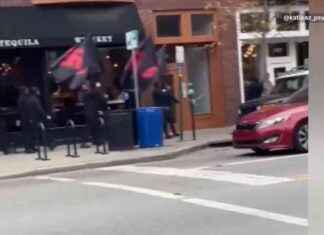There are many, many different paths, like Lord’s, to becoming a lord, lady or knight in the UK. Some as noble as saving lives, being an elite artist or athlete, or a career of public service to the nation, others more dubious such as being a friend or family member of the current Prime Minister, having served as loyal squire or, simply, “buy” the title in exchange for donations or paying in cash.
Boris Johnson, for whom this matter of morality (and even legality) is as relative as the meaning of a red light in Rome, has raised to a new level the privilege of a British leader by awarding a series of people he trusts, who have always been by his side. He had already made his brother Jo (a simple MP and Secretary of State for Universities, Science, Technology and Innovation) a baron and turned the Russian tycoon Yevgeny Lebedev (who is very close to Putin) into lords and, his player favorite cricket But the knighthood of his father, Stanley, has been vetoed by the relevant parliamentary committee. We could go as far as this!
So far and much further. Because they have also been removed from the list, which to some extent would be a kind of last wish of the British prime ministers, four MPs – Alister Jack, Alok Sharma, Nigel Adams and Nadine Norries – who were with him through thick and thin , defending him from all criticism, and even now they assure that he will return in a triumphant attitude. The latter, considered by many commentators to be the shortest minister of lights in the history of the country, was so excited to be a lady that yesterday she published an article in which she denounces “the sinister hidden forces that have prevented her from reaching the House of Lords to a humble girl from Liverpool like me”.
In Johnson’s defense, it must be admitted that he is not the only one who has devoted himself to distributing honors among friends and family as if they were candy. All was well until the liberal Lloyd George passed several towns on the list he presented after his fall in 1922, in which he literally sold knighthoods for ten thousand pounds at the time (half a million euros today) , of baron for thirty thousand, and of lord for fifty thousand. Among the buyers were a South African gold and diamond magnate convicted of fraud, a billionaire meat importer who evaded taxes and an oil tycoon who turned out to have done shady business with Germany in World War I. World War. The scandal tarnished the image of the Welsh Prime Minister (in Cardiff it is said that there are more lords and knights than in any other city because he, being from there, made all his friends and acquaintances noble, in more journalists so that they would not criticize him, and to donors in exchange for funding for his party), and favored the approval of the “law for the prevention of abuses in the granting of noble titles”.
However, the legislation did not prevent history from repeating itself. Labour’s Harold Wilson’s resignation was accompanied by the ‘lavender list’, in which he ennobled businessmen of dubious reputation who were later convicted of accounting crimes (it is speculated that he was not actually the one who drew up the list of honorees , but what was said to be his lover, Lady Falkender, who exercised considerable influence there). David Cameron distributed “gifts” to no less than fifty donors and political allies, and even gave the Order of the British Empire to his wife’s hairdresser, Samantha. Nor was Tony Blair spared, questioned by the police over the alleged sale of lordships to four tycoons in exchange for five million dollars for Labour’s election campaigns, a case that clouded the final stage of his political reign
Mick Jagger, Paul McCartney and Elton John are “sir”, but David Bowie refused the honor, and John Lennon returned the medal to the palace in protest for supporting the United States in the Vietnam War. Monty Python’s John Cleese argued that spending the winter in London to go to Parliament was too high a price, and filmmaker Ken Loach said anything before paying homage to the monarch.
Who did accept was Eric Clapton, and that shortly before Queen Elizabeth, at a reception, had asked him: “And you’ve been doing this music for a long time?”








